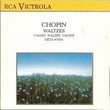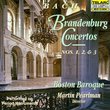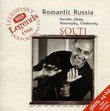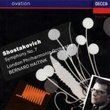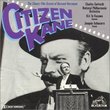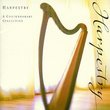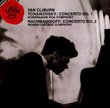| All Artists: Franz [Vienna] Schubert, Franz Joseph Haydn, Wilhelm Furtwängler, Berlin Philharmonic Orchestra Title: Schubert: Symphony No. 9; Haydn: Symphony No. 88 / Furtwängler Members Wishing: 0 Total Copies: 0 Label: Deutsche Grammophon Release Date: 4/9/1996 Genre: Classical Styles: Historical Periods, Classical (c.1770-1830), Modern, 20th, & 21st Century, Symphonies Number of Discs: 1 SwapaCD Credits: 1 UPC: 028944743920 |
Search - Franz [Vienna] Schubert, Franz Joseph Haydn, Wilhelm Furtwängler :: Schubert: Symphony No. 9; Haydn: Symphony No. 88 / Furtwängler
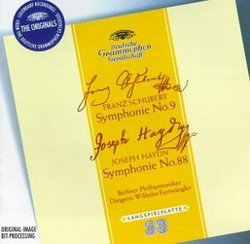 | Franz [Vienna] Schubert, Franz Joseph Haydn, Wilhelm Furtwängler Schubert: Symphony No. 9; Haydn: Symphony No. 88 / Furtwängler Genre: Classical
|
Larger Image |
CD DetailsSimilarly Requested CDs |
CD ReviewsGreat Schubert, Rare Haydn Michael B. Richman | Portland, Maine USA | 09/24/2000 (5 out of 5 stars) "When I first started seriously collecting classical music, I tended to avoid buying mono recordings. While I fell in love with golden age stereo performances, mono ones from a few years earlier just didn't sound as good. I tried to listen to historically significant discs, like the Casals Bach Cello Suites, Rachmaninoff Piano Concertos with the composer on piano, and the Furtwangler Beethoven 9th. But no matter how celebrated these performances were and how great the playing was, I just couldn't get passed the overall poor sound quality of the mono recordings. However, there are always exceptions to every rule, and this CD was definitely one of them. This recording of the Schubert Symphony No. 9 coupled with the Haydn Symphony No. 88, by the Berlin Philharmonic under the baton of legendary conductor Wilhelm Furtwangler, is a mono recording from 1951-52. But this disc, part of the DG Originals Series has terrific sound, and my only complaint is it ever so slightly lacks the overall brightness and separation that stereo provides. In terms of an empathetic, passionate rendition, this is unparalleled. The Szell and Krips versions in early stereo of Schubert's Ninth may be equal to Furtwangler's, but they certainly don't surpass it. But the added treat here is the Haydn 88. I love the Paris and London Symphonies, so I was very excited about the inclusion of the 88th. There are surprisingly few recordings currently available on CD of Symphonies 88-91, unless you buy one of those major Haydn box sets. In all, this is a wonderful pair of symphonies, recorded excellently (despite being in mono), and performed impeccably." A Three-fold Masterpiece Robin Friedman | Washington, D.C. United States | 11/09/2004 (5 out of 5 stars) "This historic CD features two symphonic masterpieces, Schubert's 9th in C major, the "Great" and Haydn's 88th in G major, performed by William Furtwangler conducting the Berlin Philharmonic. The sound of the orchestra is unusually round, warm and full. I found these performances overwhelming. Furtwangler was a leading romantic conductor of the mid-20th Century who distrusted the recording studio. His performance of the Schubert Ninth shows great fluidity of tempo and rhythm -- witness how the music develops inexorably from the slow horn-call of the opening to the allegro tempo of the movement -- and great control of dynamics. The performance captures the lyricism and drama of this, one of the greatest of all symphonies. Furtwangler's reading also preserves the unity and form of this work -- no mean accomplishment given its length, difficulty and repetitive passages which sometimes defeat this symphony in the hands of a lesser conductor and musicians. The Haydn 88th receives an incandescent reading. It is one of the best and most inspiring performances of Haydn I have heard. It is a large scale rather than a chamber reading which captures the spirit of the music in a way that is also idiosyncratic and romantic in character. Schubert's Ninth is one of the glories of music full of song, drama, and heroism. It is a lengthy difficult symphony that was controversial in its day. (Schubert could not get it performed.) It opens with a famous call for the horns in a theme that becomes the basis for the first movement. This theme alternates with a more dramatic, lively second theme. The first movement is both lyrical and heroic and is conducted here with high seriousness. The second movement begins with a long, lyrical theme for the oboe followed by sections of deep tranquility and high passion. The winds come through well in this mono-era recording. The third movement begins with a brusque theme in the lower strings followed by a trio which is the epitome of heroism. (I recently read a book on the Battle of Gettysburg in which the author, Kent Gramm, aptly referred to the third movement of this symphony as an appropriate symbol for the stand of the Union's "Iron Brigade" at McPherson's Ridge on the first day of the Battle. This is a rare comparison which helped me understand better both Schubert's music and the battle.) The long, difficult finale, with its triplet theme, and dramatically descending scale passages, is a great movement of symphonic music. Schubert's Ninth sings of heroism and strength in the face of death. Furtwangler conveys the strength, lyricism and depth of this score by a composer of genius who died young. Haydn's symphony no. 88, unlike Schubert's 9th, is a work of a composer who lived to maturity. The first movement opens with a slow introduction consisting of large, stately chords followed by a few bars of a flowing theme. This is followed by an allegro which opens with a soft, brushing theme and then gets louder. Furtwangler's reading shows great command of dynamics and use of the winds as the movement progresses. The slow movement features a theme which is repeated and embellished several times with different accompaniments and textures. It is the highlight of this symphony. The minuet is both glittering and stately in a theme given forth by the strings with the tympani in the background. Furtwangler slows down for the trio which flows in the strings with an accompaning drone figure. After a huge and dramatic crescendo, the theme of the minuet returns. The finale is a rondo, quick and humorous, with a lively skipping theme. There are two dramatic episodes followed by a sweeping uptempo close. Furtwangler in this recording treats Haydn with utmost seriousness and depth. He allows the listener to hear that Haydn was a truly great composer and that the 88th is music of the highest order. This is an essential CD for three reasons: Furtwangler's conducting, Schubert's music, and Haydn's music. Bravo throughout." Definitive recordings from Furtwangler Derek Lee | St. Paul, MN USA | 06/22/2004 (5 out of 5 stars) "Reviewing this release is truly a joy. Everything about these recordings is either perfect or near perfect (and for those of you not familiar with classical recordings, that is EXTREMELY rare). As others have noted here, the Berlin Philharmonic plays with heavenly beauty, a very particular kind of beauty (rich and weighty, but also smooth, silky, and suprisingly clear) not heard in any other orchestra, and not even heard when they were under anyone but Furtwangler. In case you have never heard his work before, this is just about the best place to start. His interpretations are carefully thought out, but also thrillingly spontaneous. As observed in the liner notes, it is a testimony to his art that, after listening to these, it is hard to imagine it any other way. His work in the studio is usually dwarfed by his live recordings, but not here. Furtwangler was, for most of his career, antagonistic towards making recordings, in no small part due to the cruel demands of the 78 rpm record (had to be recorded in 5 (!) minute sections), but with the advent of the LP , he admitted that it was finally possible to make recordings; his changing attitude towards the medium is wonderfully preserved here. To top it off, the sound is so vibrant and clearly defined, I cannot tell that it is mono instead of stereo (and I am a good amateur musician).
Regarding the Schubert, if you thought that he could only make beautiful, tender sounds, and was poorly coordinated, this is your chance to become a convert. This recording of his great C major symphony has rugged strength in abundance, and Furtwangler as always gives an illuminatingly clear view of the (impressive) structure of the piece. The Haydn, if anything, is even better! Furtwangler gives a passionate but refreshingly unsentimental reading which, again, reveals enormous amounts of detail while at the same time fitting it into his overall conception. The Largo is unforgettable. In short, whether or not you are familiar with Furtwangler's work, even if you thought you disliked Schubert or Haydn, this CD is an essential purchase." |

 Track Listings (8) - Disc #1
Track Listings (8) - Disc #1